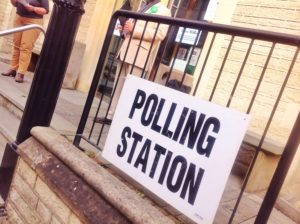
The House unanimously passes a bill intended to reduce prescription drug prices, Twitter will ban all political advertising, and more…
IN THE NEWS
- In a 403-0 vote, the U.S. House of Representatives passed the Prescription Drug Pricing Reduction Act (PDPRA) that would require the Centers for Medicare and Medicaid Services (CMS) to release payment information about prescription drugs and pharmacy benefit managers. U.S. Senators Chuck Grassley (R-Iowa) and Ron Wyden (D-Ore.) introduced the PDPRA as a way to lower the price of prescription drugs. The U.S. Congressional Budget Office released a report saying that the PDPRA would reduce national health care costs by $100 billion over the next ten years.
- Twitter announced that it will ban all political advertising. Twitter co-founder and CEO Jack Dorsey explained that “political ads present entirely new challenges to civic discourse,” citing “machine learning-based optimization of messaging and micro-targeting, unchecked misleading information, and deep fakes.” The move comes after Facebook co-founder and CEO Mark Zuckerberg faced questions about his company’s decision not to fact-check political advertisements while testifying before the U.S. House Committee on Financial Services.
- President Donald J. Trump announced his intention to nominate Uttam Dhillon, acting administrator of the U.S. Drug Enforcement Agency (DEA), to fill the permanent administrator’s role. Dhillon has served as acting administrator since Robert Patterson retired in June 2018. Before joining the DEA, Dillon was director of the U.S. Department of Homeland Security’s Office of Counternarcotics Enforcement.
- The U.S. Department of the Interior removed restrictive language from its rule concerning how the agency processes Freedom of Information Act requests. As originally proposed, the rule would have required citizens requesting documents to “identify the discrete, identifiable agency activity, operation, or program” in which they are interested and would have allowed the Interior Department to deny requests that require it to review a “vast quantity of material.” A coalition of seven governmental accountability groups had criticized the proposed language as unduly restrictive and unsupported by the text of the Act.
- The U.S. Department of Agriculture issued an interim rule regulating domestic production of hemp. The rule provides guidelines on licensing, land allocation, chemical testing, and plant disposal for states, indigenous tribes, and individual producers proposing to cultivate hemp. Although hemp—the nonpsychoactive fiber of the cannabis plant used to make rope, fabric, and paper—was classified as legal under the 2018 Farm Bill, industry saw legal protections for hemp sales as ambiguous given the prior lack of regulatory framework.
- In a 236-185 vote, the House of Representatives passed a bill that would ban uranium mining in over 1 million acres of the Grand Canyon. The bill would make permanent a 20-year mining moratorium that was implemented in 2012 and subsequently upheld by the U.S. Court of Appeals for the Ninth Circuit. President Trump first signaled support for expansion of uranium mining in 2017 when he issued an executive order declaring uranium to be a critical mineral and encouraging expansion of domestic mining. The President’s new Nuclear Fuel Working Group is expected to submit a report within the next two weeks in which it will recommend strategies to boost uranium mining.
- The U.S. District Court for the Middle District of Alabama blocked an Alabama law that made it a felony with a 99 year prison term to perform almost all abortions. Judge Myron H. Thompson wrote that “unlike laws that regulate the performance of pre-viability abortion, bans on pre-viability abortion require no balancing at all.” Alabama Attorney General Steve Marshall reportedly stated that “we intend to submit evidence that supports our argument that Roe and Casey were wrongly decided.”
- President Trump issued an executive order re-establishing a Commission on Law Enforcement and Administration of Justice, which would identify best practices for law enforcement handling crime. The order states that “over 85 percent of U.S. law enforcement personnel are state, local, and tribal officials” that would primarily benefit from the group’s work. The Commission, originally established by President Lyndon B. Johnson, will work with the U.S. Department of Justice to identify areas in which law enforcement agencies could perform more effectively.
- In response to more than 140,000 public comments, the National Parks Service withdrew its proposal to require groups demonstrating at the National Mall in Washington, D.C. to cover the cost of security for their events. Arthur Spitzer of the American Civil Liberties Union of the District of Columbia praised the change, adding that “President Trump may not like to see and hear people protesting his policies, but the First Amendment guarantees all of us the right to be seen and heard.”
WHAT WE’RE READING THIS WEEK
- In an essay for Notice and Comment, Todd Phillips, a lawyer at the Administrative Conference of the United States, argued that dissenting commissioners in multi-member agencies may need more procedural protections to ensure their opinions are heard. Phillips noted that in multi-member agency decisions, the majority sometimes silences dissenting commissioners—such as in the Federal Trade Commission’s recent settlement with Google, where a dissenting commissioner’s opinion was partly redacted. This practice is troubling, he suggested, both because it goes against principles of free speech and because dissenting opinions serve as a check on agency action by alerting the public to possible problems.
- In a new report, Antoinette Flores of the Center for American Progress examined the U.S. Department of Education’s failure to adequate monitor higher education accrediting agencies. Flores highlighted the 2018 investigation by the Education Department Inspector General finding that the agency exercised inadequate control over the school evaluation process entrusted to the accreditors. Implementing student outcome focused reviews and an investigative, data-driven approach to accreditor evaluation would better protect students and taxpayers counting on the Education Department to fulfil its gatekeeping function, Flores concluded.
- Professor Michele Benedetto Neitz of the Golden Gate University School of Law wrote a forthcoming article in the North Carolina Journal of Law and Technology about the concern that cryptocurrency—specifically, Facebook’s Libra—will place enormous decisionmaking power in the hands of the few who control it. She argued that states should consider adding ethical obligations, such as a blockchain code of conduct, as part of a regulatory scheme of blockchain technology. These ethical guidelines, according to Benedetto Neitz, may prevent ethical crises from developing.
FLASHBACK FRIDAY
- In an essay for The Regulatory Review, Professor Richard L. Revesz of the New York University School of Law criticized the de-regulatory narrative that regulatory action is undesirable as a policy matter and, if pursued at all, should require trial-like hearings. Revesz stated that regulatory actions are desirable and points to the net benefits of environmental regulations. In addition, Revesz argued that trial-like hearings result in limited regulatory action. When trials were used, he notes, “it took almost a decade to determine the relatively straightforward question of whether peanut butter should consist of 87.5 percent or 90 percent peanuts.”



